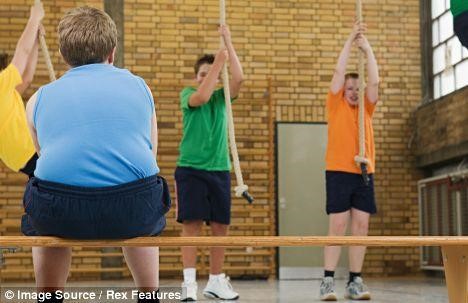This is a sponsored guest post.
You might have heard stories about a happy fat person, right? And although it may sound comforting as it might be, if a child is heavy, then it might be more a myth than reality in most kids’ lives.
Not only are there particular negative health costs associated with children being overweight, but it is also intimately entangled in their psychological and emotional world.

Social Stigma
The modern world is singular in terms of worshipping toned and slim bodies that spend a lot of time working out and going on fad diets. And with rare exceptions, only proportional and thin bodies are considered sexy. Overweight and obese people are always looked down upon.
On its own way, the social stigma that is attached to being obese can be as damaging as physical illness and conditions which usually accompany obesity. In a culture and society which puts a premium on thinness and toned body, studies revealed that kids as young as 6 years old can associate negative stereotypes with being overweight and believe that being a heavy kid makes them less likable and desirable.
School Bullying and Lowered Self-Esteem
Although there are some obese kids who are quite popular with their classmates and have plenty of self-confidence and feel good about themselves, not all obese children feel the same way and are more likely to have lower self-esteem than their thinner peers.
This weak self-esteem can be transformed into feelings of shamefulness about their own body and the lack of confidence can result in poor academic performance.
Some probably do not need a detailed description of how hard the daily life of such obese kids. These children may be told by peers, classmates and even adults that being overweight and heavy is their own fault for not controlling their cravings. They might be called names and quite popular with bullying and teasing. Their former classmates and friends may want to avoid them or they might have trouble making new friends.
Depression
With all these things and turmoil happening, obese children may feel as though they do not fit or belong anywhere. They will see themselves as an outcast or different. They will usually feel lonely and more likely find some time alone.
And if such scenarios become part of their life— day by day, month by month, and year after year— overweight kids can become extremely sad and clinically depressed and tend to withdraw into themselves.
Emotional Eating
After the bullying, teasing, and depressing thoughts, as well as other emotional peaks in life such as difficulties in school or maybe the death of a loved one, some obese kids might find emotional comfort in food and routinely overindulge which can add even more calories to their diets and plates. Although this can be reduced by making them comfort foods that do not add too many calories on their diet or you can provide them soups made with kettle soup maker. Soups are usually liked by children.
Loss of Energy and the Joy for Life
If the shameful and negative health aspects of being obese are not enough, overweight children also tend to have less energy than their thinner peers. Since it takes them more effort to be active than their peers, obese children tend to go towards low-activity lifestyles and become more sedentary.
And this is where an unfortunate cycle develops wherein they eat more and become less active resulting in a greater risk of gaining more weight. The more weight they gain, the more sedentary they become and indulge in more foods.
Over time, even the simplest and most ordinary tasks of life such as going up the stairs can be exhausting and a sense of premature aging.
Discrimination
And while these psychological troubles are severe during childhood, some overweight-related repercussions tend to continue well into adolescence and beyond! Heavy adults and teenagers tend to face discrimination all due to their weight.
Some studies even revealed that overweight people tend to be less likely accepted for admission on prestigious universities as well as reducing the chance of landing good jobs than thinner people. Moreover, obese women are less likely to date to find a lifetime partner.
In short, if obese children become obese adults, they tend to earn less money and finding a partner can be more difficult than those with an average weight.



